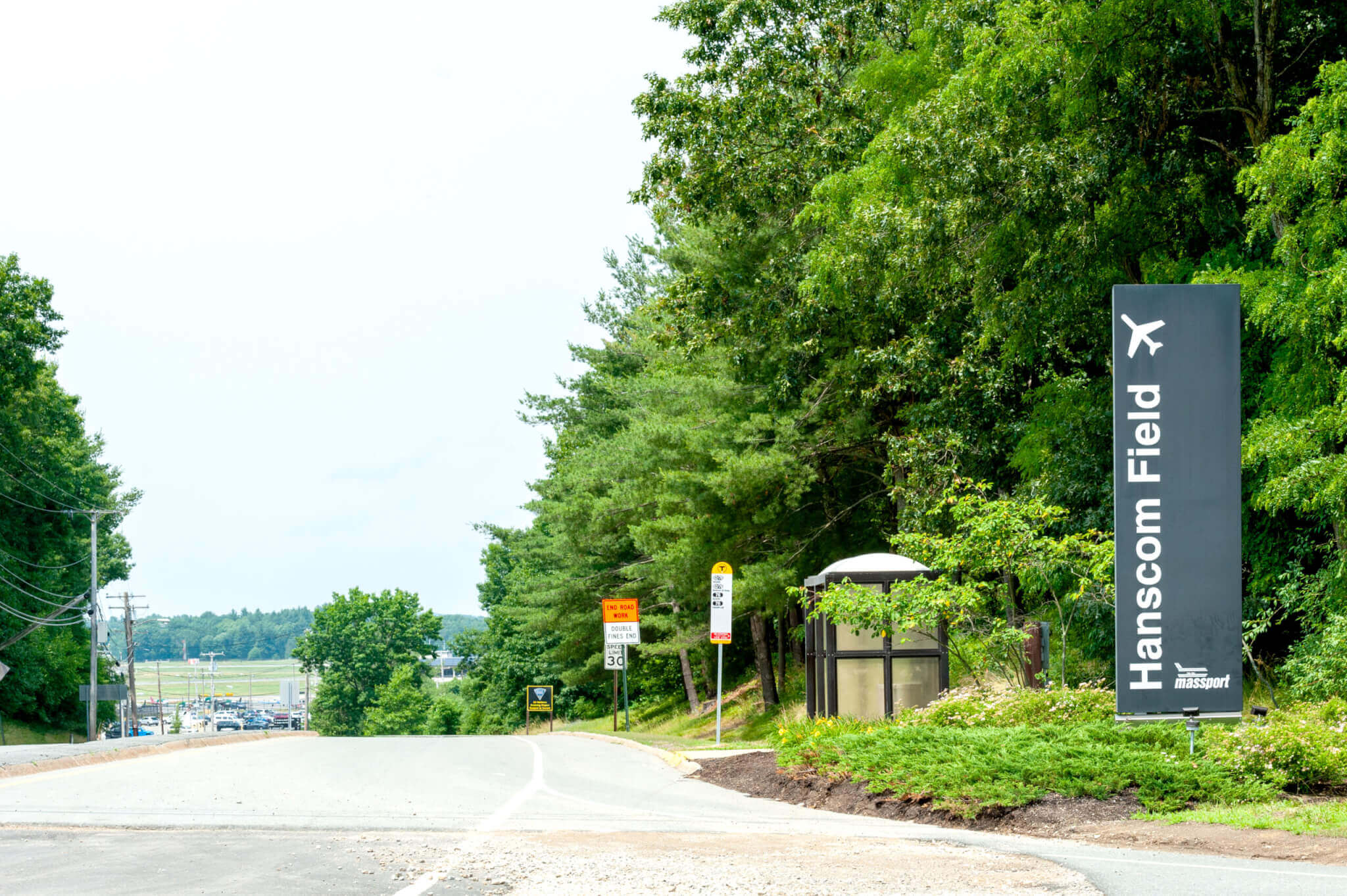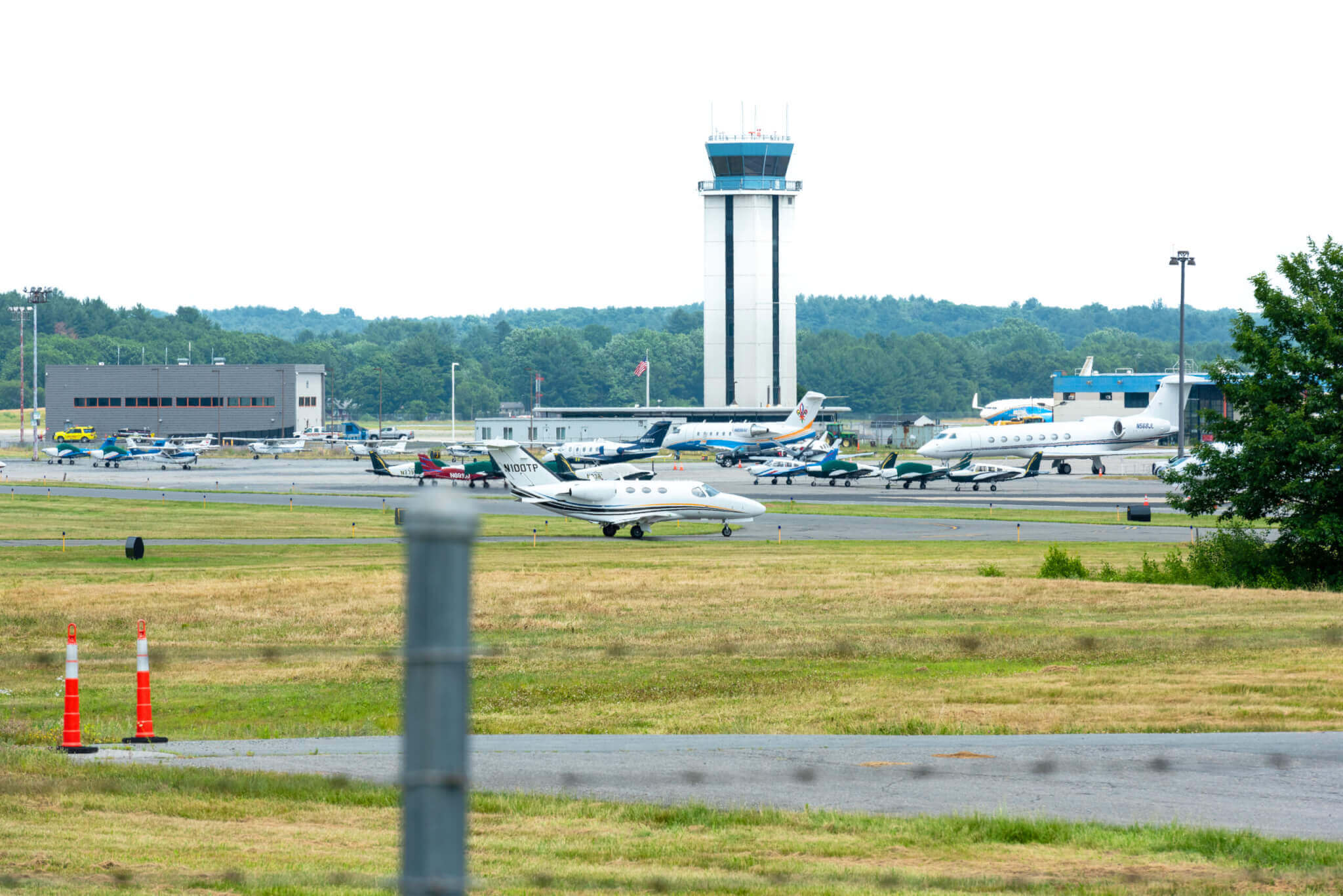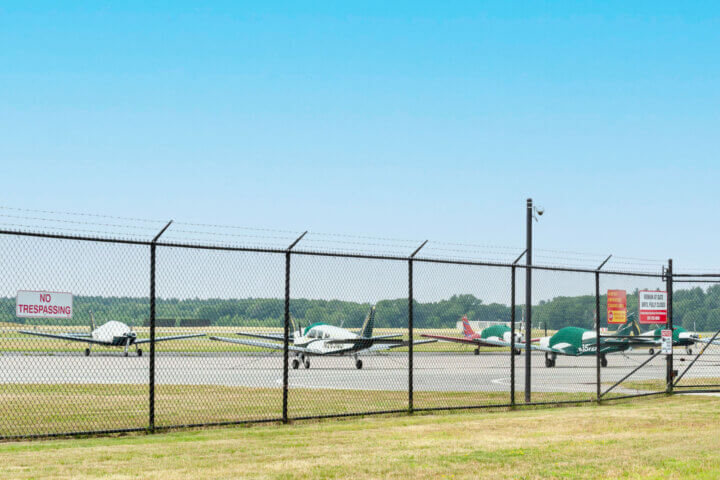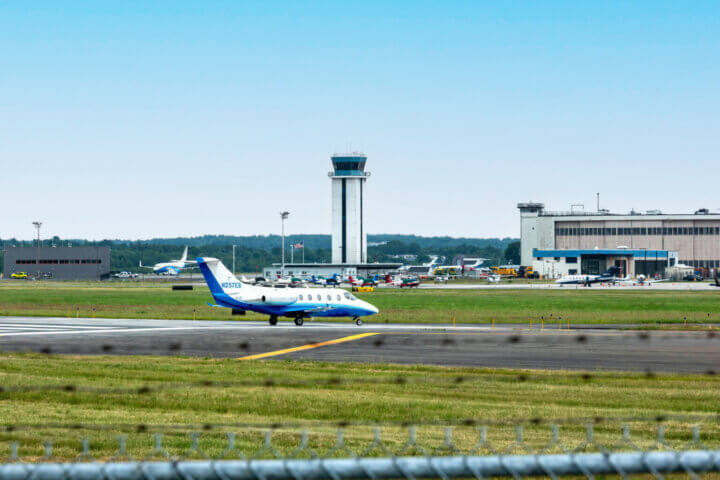By Erin Tiernan — Erin@theconcordbridge.org
Developers of a Massport-backed project that would add new private jet hangar space and fuel storage at Hanscom Airfield must explain their plans more before state environmental regulators give them the green light.
The Massachusetts Environmental Policy Act Office found developers’ analyses of potential hazards in their Draft Environmental Impact Report inadequate, a certificate issued Monday afternoon says.
The agency issued a scope for a supplemental DEIR and highlighted eight key areas of concern where they say developers haven’t sufficiently studied possible project impacts.
“MEPA is not a permitting process, and I do not have the authority to approve or deny a project,” Executive Office of Energy and Environmental Affairs Secretary Rebecca Tepper wrote in the 53-page certificate.
But, Tepper wrote, MEPA provides “meaningful opportunities for public review of the potential environmental impacts of projects” and assists Massport in taking action to avoid or mitigate environmental harm.

State regulators will require further study of sticking points between developers and project opponents.
Chief among those are anticipated reductions in so-called “ferry flight” reductions. In ferry flights, pilots drop off passengers, leave, and return hours later to pick clients up for their return journeys.
Developers claimed the project would have a net-zero carbon impact. They said more on-site jet parking would cut nearly 600 such short flights annually. An opposition-funded study refutes this claim, which state regulators want explained.
MEPA agents also want to see a third-party study on this and other flight activities related to the project, and more information on alternative measures that would lessen environmental impacts.
Also sought: more analyses of air, noise, traffic, emissions and hazardous waste remediation from construction that will happen alongside an ongoing Superfund site cleanup.
Regulators asked developers to widen their study of environmental justice and public health impacts associated with increased flight activity within a five-mile radius of the project site.
Interest groups’ backlash and the National Park Service’s concern over access to historic landmarks led MEPA regulators to request more information on how the expansion would affect cultural resources and open space, including the neighboring Minute Man National Historic Park.
The project cannot move to the Final Environmental Impact Review stage until project alternatives and mitigation commitments are finalized.

A respite… for now
State and local officials who have united to oppose the project, breathed a collective sigh of relief Monday with the project on pause — for now.
Sen. Mike Barrett (D-Lexington) said Tepper called him Monday with the news.
“She, I think, has heard the people, the towns, the advocates, and she’s heard the legislators. She’s going to be putting the developers to pace,” he said.
“Given the limited nature of the law, the best you can hope for is that it is applied rigorously, and this shows there is more likelihood now that that will happen, though it’s hardly a complete victory.”
Hanscom Field Advisory Committee Chairman Christopher Eliot of Lincoln called the ruling “good news.”
Eliot said the committee that represents the interests of the airport’s four boarding towns — Concord, Bedford, Lexington, and Lincoln — will now turn toward overseeing the supplementary review.
It’s unclear how long that process will take.
The opposition of thousands
In total, roughly 1,500 comment letters came in — from legislators, local officials, residents and community groups — to the EEA, plus a petition signed by 13,000 people.
“Nearly all commenters expressed opposition to the project and identified concerns with its impacts, particularly with respect to climate change and greenhouse gas (GHG) emissions,” Tepper said in the certificate letter.

Concord Select Board members drafted an April 29 letter opposing the project, questioning developers’ claim that the project would not generate new greenhouse gases.
“Their analysis only counts emissions from buildings while disregarding emissions from aircraft. At the same time, the project’s expansion of aircraft storage, fueling and maintenance capability all point to a likely increase in the number of flights,” they wrote.
Mark Giddings, Concord’s Hanscom Field Advisory Committee representative, declined to speak to The Concord Bridge.
Select Board member Terri Ackerman, who represents Concord on the Hanscom Area Towns Committee, did not immediately respond to questions.
A spokeswoman for Gov. Maura Healey, who has been silent on the issue as the MEPA review process has played out, referred The Concord Bridge to the state Executive Office of Energy and Environmental Affairs 170-page certificate when asked for comment on Monday.






